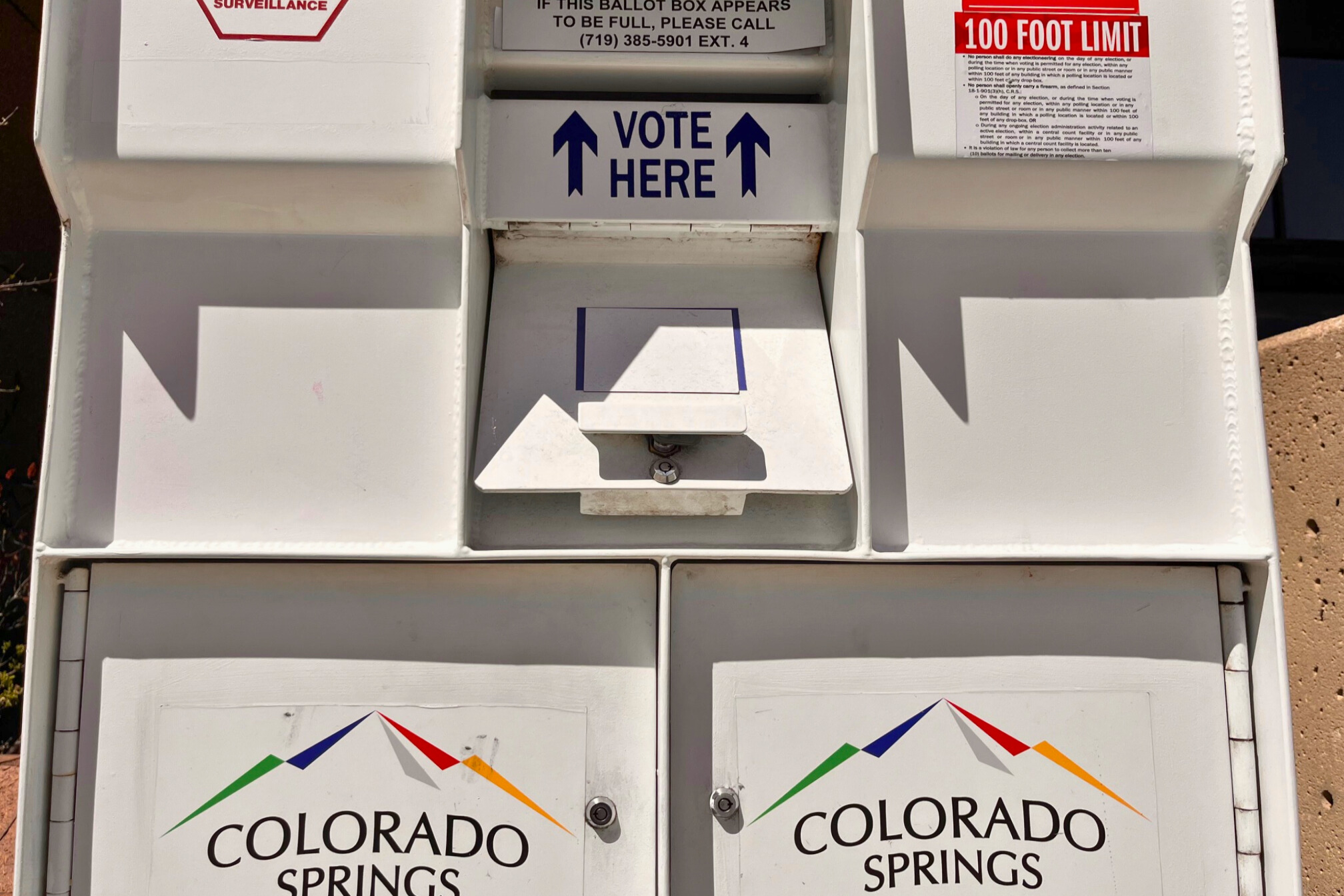
The deadly attack on the U.S. Capitol on Jan. 6, 2021, was excruciating for Colorado Springs pastor, professor and former Senate candidate, Stephany Rose Spaulding.
Just a few days earlier she had been in the seat of the country’s democracy watching her good friend — Cori Bush of Missouri — be sworn in to her first term as a Congresswoman.
“And I know the security of the Capitol,” Spaulding said. “I couldn’t even get through security with a pen in my purse!”
So when she turned on the TV back home and saw massive crowds with large backpacks and weapons her “heart just began to sink and my stomach started churning.”
The gut punch for Spaulding was the overt white supremacy on display.
A noose was erected outside the Capitol. Confederate flags were flying. And the building itself was breached in an attempt to undermine an election whose outcome depended very much on voters of color.
After frantically calling her friend to make sure she was safe, Spaulding let her fury, exasperation, and grief come to the surface. She recorded a video that she made public that day.
“Black justice workers are not OK,” she said, through tears. “We are triggered because we are watching how little our lives matter play out in full color for the globe.”
Spaulding is also Associate Vice Chancellor for Equity, Diversity, and Inclusion at the University of Colorado, Colorado Springs, and the author of “Recovering From Racism, A Guidebook To Beginning Conversations.” Her video message was as much an unburdening of her own emotions as it was an impassioned plea to white people.
“Get off of your behinds and do the work that is necessary today,” she said. “I don't need a hug. I need you to fix your freaking families. I need you to fix yourself. I need you to fix this! Do that. Do that. So white supremacy dies once and for all.”
Many elected leaders have publicly denounced what’s now being called an insurrection at the Capitol. A few days later, President Donald Trump was impeached over his role in it, becoming the first president to be impeached twice. But Spaulding believes the way many elected leaders — even self-described progressive leaders — have spoken about the attack has furthered the harm to people of color in this country.
A common refrain heard: “this is not us” or “we are better than this.”
Spaulding said these claims allow for the perpetuation of systemic racism.
“When we deny that this is who we are we overlook the 500 years of the ways in which white supremacy ideology has been inculcated into the culture, into the law, into the practice of being an American,” she said. “When we deny that, we stifle the work of people of color. … It doesn't allow us to get to the truth and truth is the basis of any kind of journey towards healing.”
In a lot of ways, Spaulding notes that American society is “discovering the cancer that is so deep, and we have broken the skin, but we have not done the surgery.”
Sharing a similar sentiment, Democratic Rep. Cori Bush, recently wrote an opinion piece for The Washington Post titled ‘This is the America that Black people know.” She writes, “This is America, and it will continue to be America, until white supremacy is dismantled.”
And it’s not just a question for activists of color. Christine Saxman, a Chicago-based white woman working for racial and social justice, has been reckoning with her own role in a systemically racist society.
“I am connected to those white people who were storming the Capitol,” she said. “And I mean that literally. I have people in my family who support some of these white extremists.”
She watched Spaulding’s reaction video and said “it was just a reminder of how hard it is for my white community to stay present in that kind of emotion.” She took Spaulding’s plea to heart, not to be numb, shocked or reactive “but to really think about how does this actually transform something?”
She asks herself “how do I, as a white person, hear Stephany’s call to action and actually make it action and not just some kind of performative piece? How do I actually work to transform the relationships that I have control over?”
Saxman’s journey began with what she says was a mistake. She was a classroom teacher.
“I had these very unrealistic visions of myself as kind of the white savior,” she said. “I was going to come in and I was going to help students of color in this predominantly white district. And I failed miserably.”
She described the choice she faced as “ignore that failure or “learn and transform.” Now she does anti-racism training for mostly white people. Right now white people have to “notice what race had to do with the insurrection” and start to build the capacity to have the conversations in their lives for race to never be off the table.
“The start of a racially conscious journey as a white person,” Saxman said, is to ask yourself, “What do I do if I lack authentic mutually reciprocal relationships with folks of color in my life?”
Spaulding agreed. She said if you ask someone what their doctor looks like or what the background of their real estate agent is, or their neighbors, they might begin to see that “all of the people that they are in a genuine relationship with on a day-to-day basis are white people. That is enshrining a world of whiteness that allows for the institutionalization of white power.”
It’s a view that holds white people accountable, even for the passive ways they contribute to the status quo.
In her video response, Spaulding indicted white America “for not listening to Black people, for not heeding what we have been telling you. For years and years, we have been showing you how democracy is failing because of racism and how embedded it is in every structure and institution. You need to own it and deal with it and deal with it quickly because we will not have a country. If you do not get it together, white America, because this is what happens when chickens seriously come home to roost.”
Though the killings of George Floyd, Breonna Taylor and Elijah McClain sparked Black Lives Matter protests that gained momentum and moved the conversation more into the mainstream over the past year, both Spaulding and Saxman agreed, we will only come closer to justice if white people take action.
Saxman said that “if white folks want to reject what they heard in what Stephany shared, if they want to distance it, if they intellectualize it,” then we won’t be able to get rid of white supremacy in the United States.
On top of that, Spaulding believes we need an official national effort to this end. She founded a group called Truth and Conciliation, which calls for a federal commission.
Her word choice of ‘conciliation’ — over ‘reconciliation’ — was purposeful.
“A lot of my white colleagues, allies, and friends want to move to reconciliation,” she said. “But reconciliation presupposes that there was an amicable agreement at the start. And there has never been in the history of what we now know as the United States through the age of colonization, there was never a place of agreement of racial harmony. So we cannot go back to that.”









